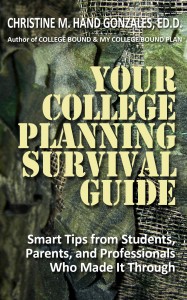Every year thousands of young men and women make the choice to serve their country. They e njoy a military career by enlisting in one of the following branches: Air Force, Army, Coast Guard, Marines, Navy, US Merchant Marine Academy, and National Guard. Some individuals will apply directly to a four year service academy such as U.S. Military Academy-West Point, New York; U.S. Naval Academy in Annapolis, Maryland; the Air Force Academy in Denver, Colorado; and the Coast Guard Academy in Groton, Connecticut. Completing your education at one of these programs will earn you a bachelor’s degree, commissioned reserve officer status, and a commitment to the military for a number of years. Another option is applying to a Reserve Officers’ Training Corps (ROTC) scholarship program at a college. These are two, three, and four year scholarship programs which help you decide which direction you would like to pursue (ROTC College Profiles). You graduate with a degree and serve in the U.S. Military as a commissioned Officer.Your commitment for service will range from 2-5 years depending on the time your scholarship was in effect during your college education. Click here for more information.
njoy a military career by enlisting in one of the following branches: Air Force, Army, Coast Guard, Marines, Navy, US Merchant Marine Academy, and National Guard. Some individuals will apply directly to a four year service academy such as U.S. Military Academy-West Point, New York; U.S. Naval Academy in Annapolis, Maryland; the Air Force Academy in Denver, Colorado; and the Coast Guard Academy in Groton, Connecticut. Completing your education at one of these programs will earn you a bachelor’s degree, commissioned reserve officer status, and a commitment to the military for a number of years. Another option is applying to a Reserve Officers’ Training Corps (ROTC) scholarship program at a college. These are two, three, and four year scholarship programs which help you decide which direction you would like to pursue (ROTC College Profiles). You graduate with a degree and serve in the U.S. Military as a commissioned Officer.Your commitment for service will range from 2-5 years depending on the time your scholarship was in effect during your college education. Click here for more information.
Why Do I Need a Resume of Activities?
 Involvement in extracurricular activities can make you stand out in the college application process. Are you a leader? Have you achieved a noteworthy level of achievement? How does the activity make you distinctly different from others with similar interest?
Involvement in extracurricular activities can make you stand out in the college application process. Are you a leader? Have you achieved a noteworthy level of achievement? How does the activity make you distinctly different from others with similar interest?
This same resume will also be helpful for teachers and counselors whom you may ask to write your letter of recommendation. So gather the following information: name, address, professional email address, cell phone/home phone number, objective or summary, education, extracurricular activities, volunteer service, awards and certificates, skills/academic achievement, music /artistic achievements, references, and other information.
Think about your qualities: Time management; teamwork; goal-oriented; competitiveness; confidence; persistence/endurance, loyalty; discipline; taking criticism; dealing with setbacks; leadership; and flexibility/adaptability.
I Need a Letter of Recommendation – How Do I Request One?
 Colleges may require a letter of recommendation, or they may not. You will need to review what each school requires as part of the application. There are several people who may need to write on your behalf including your counselor and/or a teacher. Sometimes colleges will specify what they are looking for more specifically, like a letter from a teacher who taught you your junior year or one who taught you in a core course like English, math, science, history or foreign language. Review the following tips to help you get an effective letter of recommendation:
Colleges may require a letter of recommendation, or they may not. You will need to review what each school requires as part of the application. There are several people who may need to write on your behalf including your counselor and/or a teacher. Sometimes colleges will specify what they are looking for more specifically, like a letter from a teacher who taught you your junior year or one who taught you in a core course like English, math, science, history or foreign language. Review the following tips to help you get an effective letter of recommendation:
The letter should be from someone who knows you well. He or she will need to be able to produce a well-written piece that will help the admissions office learn something new about you. Read more tips on how to request a letter of recommendation.
Internships for High School Students
Internships are a great way to get experience in a certain field of study. So why intern in high school?
are a great way to get experience in a certain field of study. So why intern in high school?
Work experience in a field of study you want to pursue in college can give you a jump up in the college application process. It is a way to stand out in a crowd. An internship will also allow you to understand more details about your major of interest and help you to understand how organizations operate.
So, how do you find an internship? First identify your passion. Some companies offer formal internship opportunities to high school students in particular. Some pay, some are unpaid, and some you’ll pay for. Research companies in the industry that interests you. Start by asking around at local business associations. Use CareerOneStop’s Employer Locator to help you identify companies in your local area. Next, talk to the Human Resource representative or manager to see if positions are available. Check out local organizations like the newspapers, museums, and hospitals. You may use your contacts on Facebook or Twitter to find openings in your specific area of interest. Try websites like Internships.com, Indeed.com. , or Jobs.change.org. For more on how to apply, click here.
Over 1000 Families Reading eBook – Your College Planning Survival Guide!
Ebook or paperback – which is your preference? More and more people are turning to electronic versions of books for their reading pleasure. This week over 1,000 people downloaded “Your College Planning Survival Guide: Smart Tips From Students, Parents, and Professionals Who Made It Through.” I hope they found it enlightening and useful. Reviews indicate the information offered in this guide equate to having a professional college counseling consultant at your fingertips – it answers all your questions regards to college planning process.
Planning Survival Guide: Smart Tips From Students, Parents, and Professionals Who Made It Through.” I hope they found it enlightening and useful. Reviews indicate the information offered in this guide equate to having a professional college counseling consultant at your fingertips – it answers all your questions regards to college planning process.
Amazon ranks this Kindle eBook edition #1 in “Educational Reference” category for “High School” and “Parent Participation.” If you are one of the thousand plus readers, please offer a review on Amazon if you found it helpful and share your knowledge!
For those that still prefer holding a book in your hands, highlighting the important tips, and making notes to yourself in the margins, you will find this book is also available in paperback. Happy Reading!
Link to Amazon books – click here! Also available in paperback!
What Are the Benefits of Attending a Pre-College Program?
 Pre-College Summer Programs offer rising juniors and seniors in high school the chance to see what college life is all about. During a one or two-week session, you will get an exciting glimpse of academics and residential life at a major state university, and leave better prepared to meet the challenges of your first year at college.
Pre-College Summer Programs offer rising juniors and seniors in high school the chance to see what college life is all about. During a one or two-week session, you will get an exciting glimpse of academics and residential life at a major state university, and leave better prepared to meet the challenges of your first year at college.
As a Pre-College residential student, you will:
* Attend challenging academic classes with the university faculty and instructors
* Meet admissions professionals and receive guidance on the competitive college admissions process
* Learn to balance the demands of college-level courses with extracurricular activities Click here to read more benefits
What Is A Gap Year?
 According to the University of Delaware, the definition of “Gap Year” is a “temporary position (1 – 3 years) between college, graduate school or a full time job.” Many students are interested in “taking a year off” before buckling down to a “serious” job or graduate school. These temporary “in-the-meantime” jobs can provide experience, direction, emotional and cognitive growth, and satisfy curiosity about the real world.
According to the University of Delaware, the definition of “Gap Year” is a “temporary position (1 – 3 years) between college, graduate school or a full time job.” Many students are interested in “taking a year off” before buckling down to a “serious” job or graduate school. These temporary “in-the-meantime” jobs can provide experience, direction, emotional and cognitive growth, and satisfy curiosity about the real world.
Ask yourself these five questions:
- Do you enjoy traveling?
- Do you like learning new languages?
- Are you a hands-on learner?
- Do you like making new friends?
- Are you open to new ideas and challenges? For more questions to consider click here.
Social Networking Tips for Students – More on Facebook!
 The Intended College Use is Not the High School Reality
The Intended College Use is Not the High School Reality
Keeping connected to friends and family across the world is comforting. Social networking is a great way to find a job, network, and stay in touch with those who matter most. But how do you protect yourself while on the Internet?
Facebook was the first large scale networking site made specifically for college students. Though it still requires a valid email address to signup, anyone can now join and network in regions such as a major city, workplaces, colleges, and high schools.
Social Networking Tips for Students
It is a student’s responsibility to protect his or her online accounts. Click here to view more tips.


